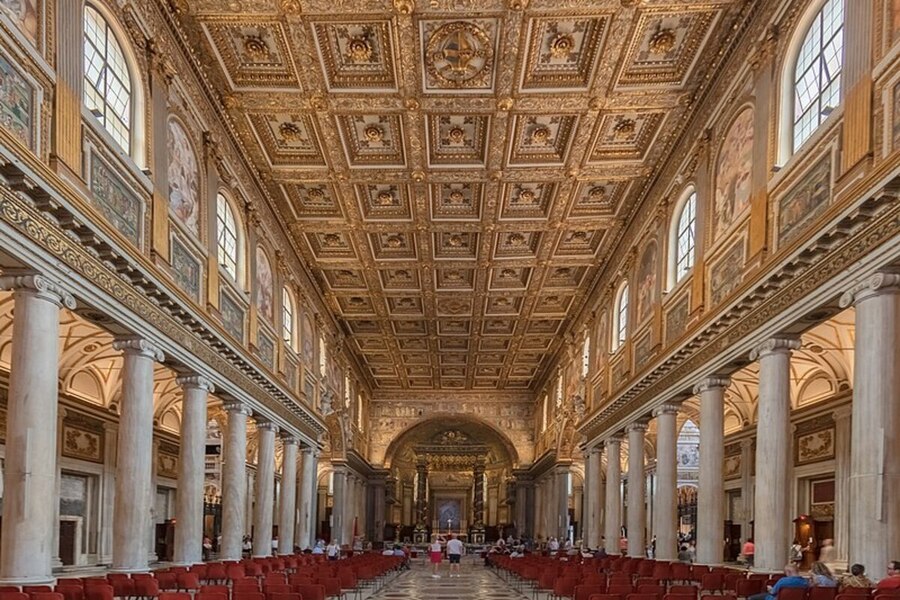With a chirograph dated March 19, 2024, Pope Francis approved the new statutesand regulations for the Chapter of the Papal Basilica of St. Mary Major in Rome. The measure is intended to free the canons from financial and administrative obligations, allowing them to devote themselves fully to the spiritual and pastoral accompaniment of the faithful.
The Pontiff granted Monsignor Rolandas Makrickas, coadjutor archpriest of the basilica, the necessary authority for the application of the new regulations and the government of the Chapter, while temporarily retaining legal representation and administrative powers.
After all, Bishop Makrickas had been entrusted with the task of Extraordinary Commissioner of the Chapter, including financial management, as of December 15, 2021. The fruits of that assignment have now led to this final decision of Pope Francis.
In another rescript, the Pope also established that canons and coadjutors of the Chapter who have reached or will reach the age of 80 will assume the status of "honorary", retaining certain benefits such as housing, robes and chapter allowance. They will be able to continue their voluntary liturgical-pastoral service and have access to the canonical cemetery. The same provision applies to those who have not participated in chapter celebrations and sessions for some time, regardless of their age.
This measure marks a turning point in the life of the prestigious Chapter of St. Mary Major, custodian of important relics - among them the centenary effigy of the "Salus Populi Romani", to which Pope Francis is very devoted - in accordance with the principles of the apostolic constitution "Praedicate Evangelium".
The new statute
The document concerning the statute of the chapter and canons of the Papal Basilica of St. Mary Major, approved by the Pontiff, defines the structure and functions of the chapter and canons, underlining, as mentioned above, the importance of liturgical and pastoral activities.
It deals with various aspects, such as the composition of the chapter, the functions of the cardinal archpriest and canons, appointments by the Roman Pontiff, vacations and spiritual exercises, the celebration of Mass and pastoral activities. In addition, provisions are specified concerning the termination of the office of the canons, the celebration of funeral Masses for deceased canons, the management of the movable and immovable property of the chapter, the appointment and functions of the Board of Auditors, as well as final provisions concerning the interpretation of the present statute and the competent tribunal in contractual and economic matters.
Finally, all legal, regulatory and customary norms in force up to now are hereby repealed.
The Regulations
The Regulations contain the details of the rules and procedures governing the role of canons within the Basilica. Among the provisions, there is information regarding the assignment of accommodations, financial responsibilities, chapter sessions, spiritual and liturgical duties, as well as how to resign from the office of canon.
The norms also establish the rules for participation in liturgical functions, voting procedures during chapter sessions, and the responsibilities of the officers and secretary. Provision is made for revocation of accommodation in case of delinquency and for dealing with situations of inconsistency in the conduct of canons.
A bit of history
The Chapter of the Basilica of St. Mary Major takes the form of a Priestly College under the direction of a cardinal archpriest, also known as the Liberian Chapter.
Its existence is attested for the first time in the 12th century and the first codices of the Chapter date from the 13th century with dates of 1262, 1266 and 1271. Documents from the 14th century already attest to the first efforts to establish fixed rules for the functioning of the Chapter, approved by the Pontiffs of the time.








